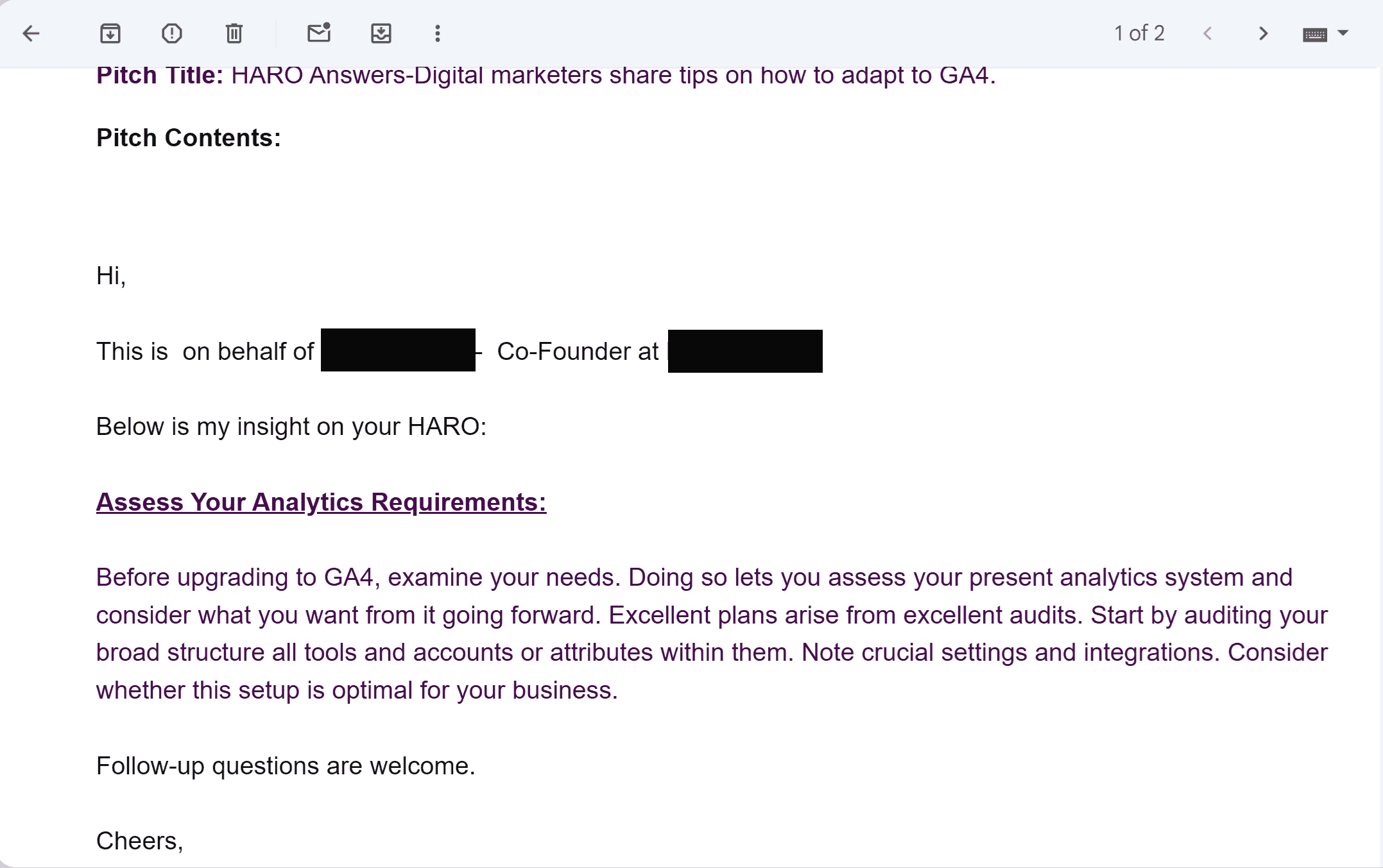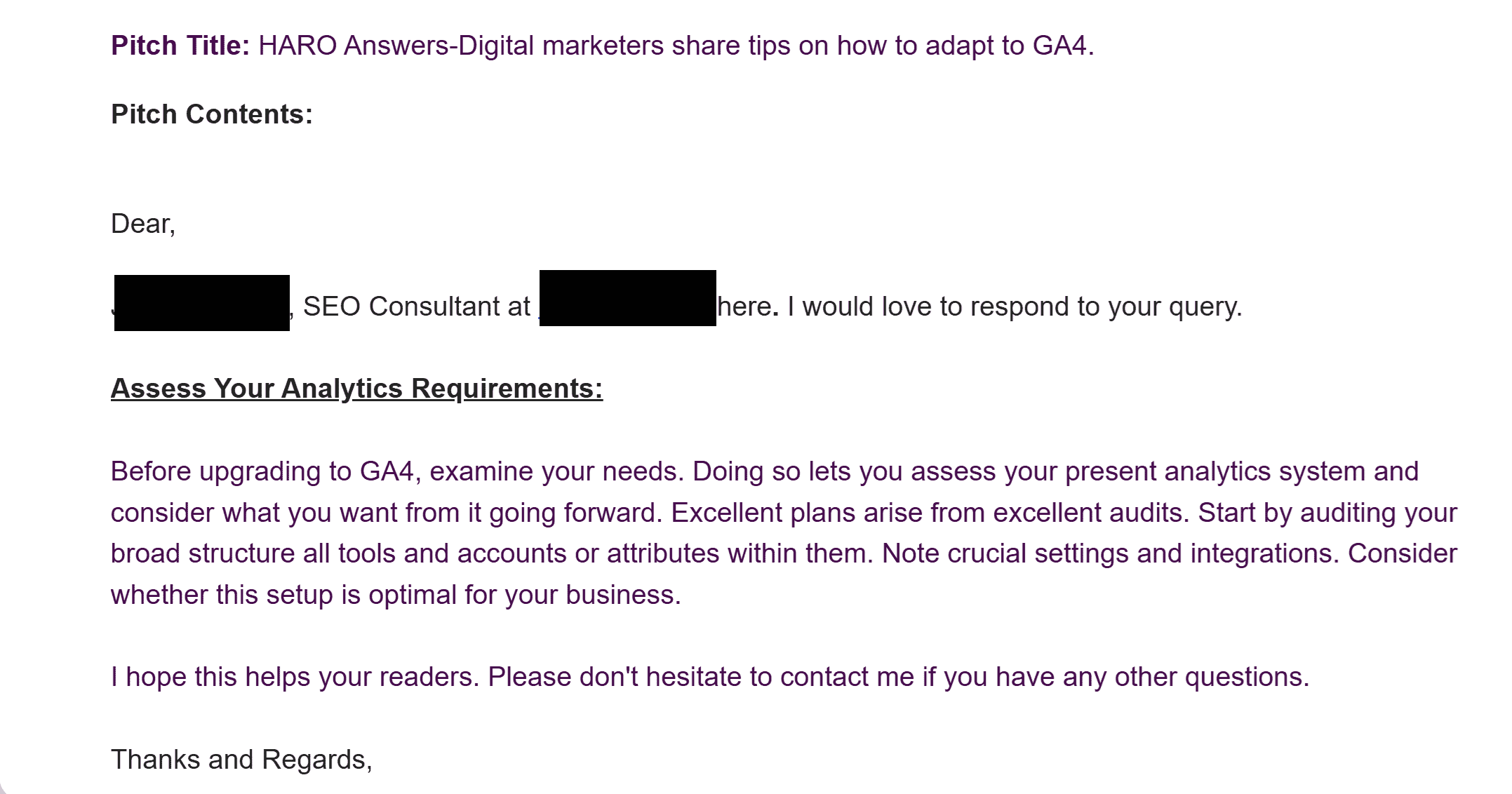
Being featured in expert roundups is one of the most effective ways to grow your online presence, connect with other experts, and showcase your knowledge. Over the years, I’ve both created and contributed to many expert roundups, and I’ve seen firsthand how much value they can bring. Whether you’re just starting out or you’ve been in your industry for years, roundups can amplify your voice, help you build credibility, and open doors you didn’t even know existed. They are also an excellent way to get backlinks to your website.
Benefits of Being Featured in Expert Roundups
1. Increase your online reputation and expertise
When you are featured in an expert roundup alongside top voices in your industry, even if you feel you haven’t yet reached “expert” status, the fact that others present you this way is already a huge benefit. It sends a clear message — both to their readers and to your own — that your opinion is valued and that you’re on the same page as the big names in your niche. Fake it ’till you make it truly applies here. I started creating expert roundups and being featured in them right after launching my first website. My very first article was a roundup, which allowed me to connect directly with industry leaders even as a complete newbie.
2. Get Backlinks
Every expert roundup you’re featured in is an opportunity for a high-quality backlink to your website. Instead of spending many hours or even days writing a guest post to earn a link, you can get a valuable backlink by simply writing a few thoughtful paragraphs. These links don’t just drive traffic; they also strengthen your SEO, helping more people find your content organically. Over time, backlinks from roundups add up, boosting your domain authority and making it easier for future content to rank higher in search results. Even a single high-quality roundup feature can get backlinks that outperform multiple guest posts in the long run.
3. Increase your blog traffic
Writing interesting, thoughtful answers in expert roundups can spark readers’ curiosity and motivate them to visit your blog to learn more about you. Don’t give the most obvious answer—one of the biggest risks in expert roundups is repetition. If 40 people say the same thing, the roundup quickly becomes boring.
In the early years of expert roundups, around 2010–2015, the questions were often things like “What are your top 3 favorite SEO tools?” Contributors simply listed three tools, and the one with the most mentions was considered the “best.” These types of roundups didn’t draw much attention to the contributors themselves; only the final result—the tool with the most votes—really mattered. Roundups have evolved since then. Today, the most popular questions are framed like “What is the best way to [achieve a desired goal]?” This allows for a higher diversity of opinions and gives contributors the chance to truly showcase their expertise.
4. Build relationships with roundup creators
Regularly participating in roundups and engaging with the creators establishes you as a reliable expert. Bryan Eisenberg once gave me the best networking advice: “Never eat lunch alone.” He explained that whenever he visits a new country, he checks his friends’ list to see who he could meet in person. I first met him in 2016 when he came to speak at the GPeC Summit, and since then, I’ve met other online friends in real life, some when they visited Romania, others when I traveled abroad.
Some experts liked my work so much that they even hired me to create expert roundups for them. By taking the time to reply to a roundup, you begin building a connection with the creator that can last for years and open the door to bigger opportunities.
5. Connect with other bloggers and influencers
Being featured alongside other experts isn’t just about visibility—it’s about relationships. It gives you an organic reason to reach out later with collaboration ideas or interview requests. You can start your outreach with: “We were both featured in the same expert roundup by [creator]…” This immediately establishes common ground and credibility, making it easier to propose collaborations or co-created content.
6. Grow your email list
If you have a landing page set up, readers who find your insights valuable may want to subscribe to hear more from you. Expert roundups act as a trusted signal, showing that other experts rely on your perspective. This trust translates into more clicks to your landing page and more email signups, helping you grow a community of engaged readers who are genuinely interested in your content.
7. Attract new social media followers
Many experts share the roundups they participate in with their audiences. When you’re included, your feature is amplified far beyond your own social reach. Even if you currently have a small following, being featured exposes your insights to a broader audience, including people who might never have found you otherwise. Some of the experts I’ve featured have very large followings, so a single mention can introduce you to thousands of potential readers or collaborators.
8. Position yourself as a go-to expert
Repeated appearances in expert roundups help establish you as someone others turn to for insights. This isn’t just about visibility—it’s about becoming a recognized resource in your niche. When journalists, bloggers, or collaborators repeatedly see your name, your credibility grows organically.
9. Open doors for collaborations and partnerships
When making an expert roundup for the first time in a new niche, I often search for other roundups on similar topics to identify experts and industry leaders to reach out to. The fact that they replied to previous roundups shows that they understand the format and are willing to contribute. By participating in just one roundup—even on a smaller or lower DR website—you can open the door to opportunities to be featured on other, more authoritative sites.
10. Build your personal brand
Each roundup you participate in can be showcased on your website, in your email signature, or on social media. Strategically displaying these features signals expertise and authority, helping your audience and peers see you as a trusted voice in your field. Maintaining an updated Press or Media page also reinforces your credibility, as it shows that other experts regularly quote and rely on your insights.
Tools to Use to Get Featured in Expert Roundups
Getting featured in expert roundups often starts with knowing the right platforms. Each tool works differently, and as someone who has used them for years, I’ve noticed their advantages and drawbacks.
HARO (Help a Reporter Out)
I like HARO because it has a very large base of subscribers and is by far the fastest way, for me as an expert roundup creator, to find experts to quote. If I submit the same query to all the platforms mentioned in this article and give a very short deadline—let’s say three days—I may not get any answers from Qwoted or Featured.com, and only a few from SourceBottle. But from HARO, I can easily receive 30 answers in just three days.
One of the criteria for getting a query approved on HARO is that the website where the article will be published must have a DR (Domain Rating) of at least 20. The URL of the website is included in the query, so experts can check where their contribution will appear. Before HARO was closed at the end of 2024, reporters also had the option to check a box and send the query anonymously, meaning sources didn’t know in advance where their answers were going to be published.
Because HARO has such a large database, the competition is higher, and the chances of being chosen are smaller compared to other platforms. This is why perseverance is key. Even if many of your pitches go unanswered, consistent effort will eventually get you featured.
SourceBottle
On SourceBottle, the competition is much lower than on HARO. For example, if I post a request with a 30-day deadline, I may receive around 20 answers in total. That’s a big difference compared to the dozens of responses I can get on HARO in just a few days.
Because there are fewer submissions, your chances of having your pitch noticed are much higher. Another advantage is that the quality of the answers and the expertise of the experts are generally better than on HARO. This makes SourceBottle a great platform for experts who want their contributions to stand out.
Qwoted
I like Qwoted, but like any tool, it has both advantages and disadvantages. The biggest challenge is that it has fewer users. For some roundups, I don’t receive any pitches at all, while for others I may get about 10 pitches over the course of a month. The smaller pool of experts means less competition, but it also means there are fewer opportunities overall compared to HARO or SourceBottle.
Featured.com
Featured.com (previously known as Terkel) is another platform that connects experts with opportunities to be quoted in articles and roundups. The process is straightforward: experts submit answers to questions, and the best ones get published. From my experience, the number of pitches here is lower than on HARO, but the opportunities are usually well curated. It can be a good addition to the other tools if you want to increase your chances of being featured in different publications.
Some of these platforms also have strict anti-spam rules. On HARO, for example, you can be flagged if you use AI to generate your answers without proper personalization. HARO also strips attachments from emails to protect users, which means you should never send your answers as a Word or PDF file because reporters won’t receive them. Always include your answers directly in the body of your email.
How to Reply to an Expert Roundup
Answers for expert roundups usually should be around 200–300 words. Since this is your area of expertise, it shouldn’t take more than 10 minutes to write a solid answer. It’s best to write your responses yourself, include examples, and make them interesting. Include your full name, a professional photo, and your job title when submitting your answer. Your photo should be clear and professional, showing only you—no group shots—and include a link to it.
You can also mention your job title so the creator can use it in a short bio, for example: “According to Miranda Smith, Marketing Director at…” If you’re pitching on behalf of someone else, include all relevant details to avoid confusion. Sometimes PR experts pitch for their clients, or VAs for their employers, so it’s important to provide all the necessary information.
Inevitably, some people are tempted to use AI, which I don’t advise. I understand the desire to save time, especially on HARO, where many pitches go unanswered because reporters receive more answers than they need. While AI can help speed up the process, it can also reduce your chances of being selected. In fact, I once received two pitches on HARO that contained the exact same answer, word for word.


This was a clear sign that both people had relied on AI, and it immediately made me decide not to include either of them. When multiple experts send in identical answers, it not only looks unprofessional but also makes it obvious to the creator that the responses were generated by a tool. If you choose to use AI, make sure to personalize your answer, rewrite it carefully, and verify that it will pass AI detection tools like ZeroGPT or GPTZero.
Different platforms have specific considerations. HARO strips attachments like Word or PDF files from emails, so always include your answer in the body of the email and make sure your email address is included for follow-up. On Qwoted, your email must be in your profile, or the reporter won’t be able to invite you to other expert roundups directly. SourceBottle and Featured.com also have their own submission rules, so always read each platform’s instructions carefully to maximize your chances.
If the creator replies or sends the live link, always answer promptly and politely. Thank them for featuring you, compliment the article, and share it on your social media channels. Tag both the creator and the official account of the website. Adding a Press or Media page on your website to showcase your features shows that you are an active contributor and builds trust with both readers and roundup creators. Always say yes if a creator invites you to another roundup, even on smaller sites.
Expert Roundups: A Smart Way to Get Backlinks and Build Authority
Expert roundups are more than just a way to get backlinks or quick visibility. They are opportunities to grow your reputation, form genuine connections, and position yourself as a trusted voice in your niche. Whether you’re just getting started or already established, contributing to roundups can be a powerful part of your long-term strategy.
By writing thoughtful, original answers, engaging with the creators, and sharing the published posts, you’re not just another name on a list—you become a valuable collaborator that people want to feature again and again.
Great article! Getting featured in expert roundups really helps in building strong authority backlinks and organic visibility. I’ve been experimenting with this strategy for one of my niche projects — a site focused on anime-inspired gaming content (Doraemon X APK) — and it actually works! The key is providing genuine insights and engaging responses that editors can’t ignore.
Thanks for sharing these tips — especially the part about personal outreach and value-driven answers. Super helpful!